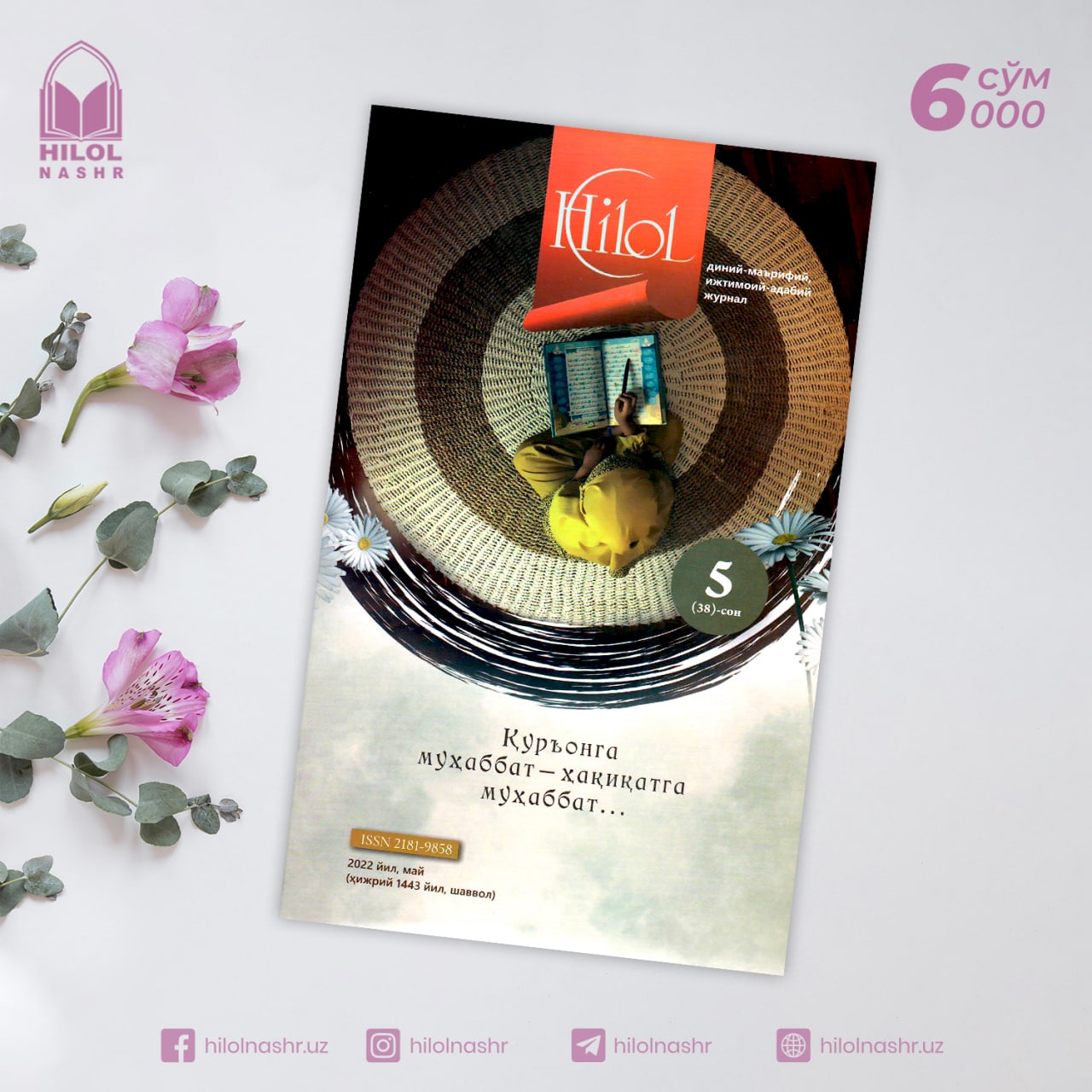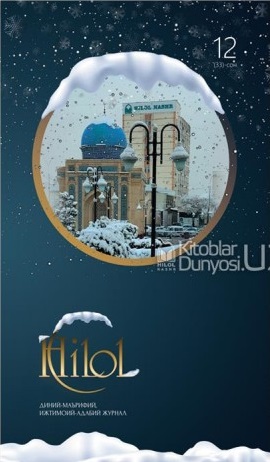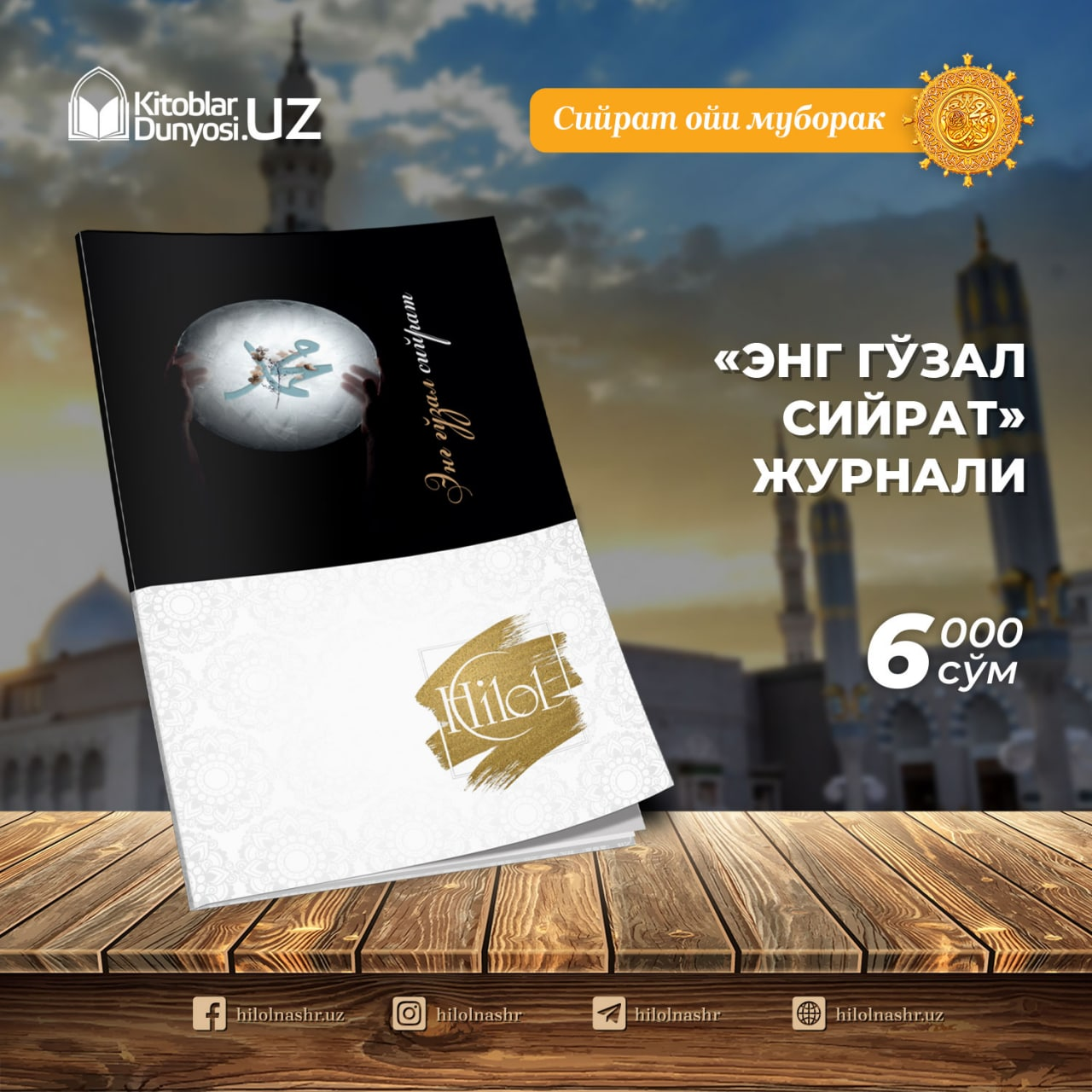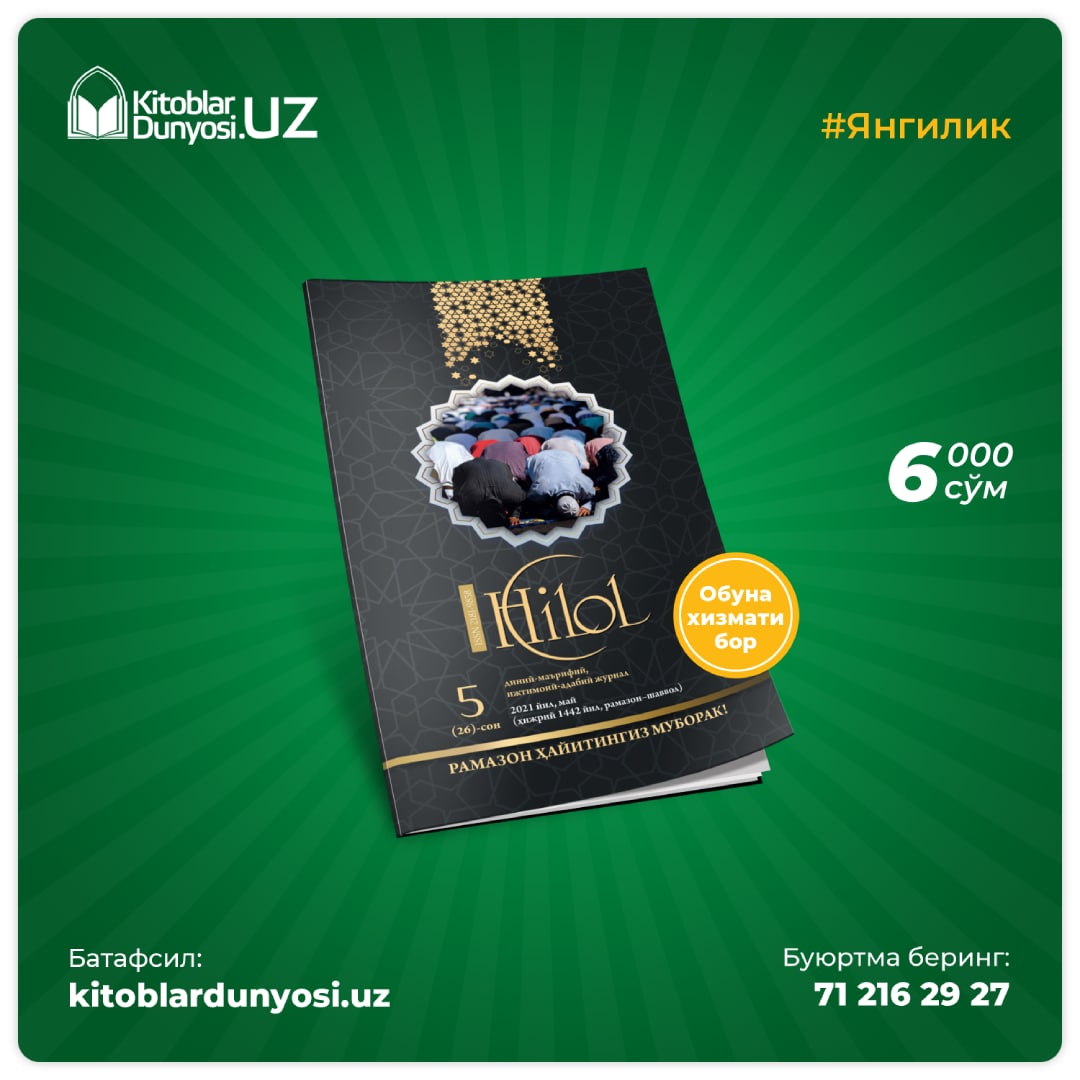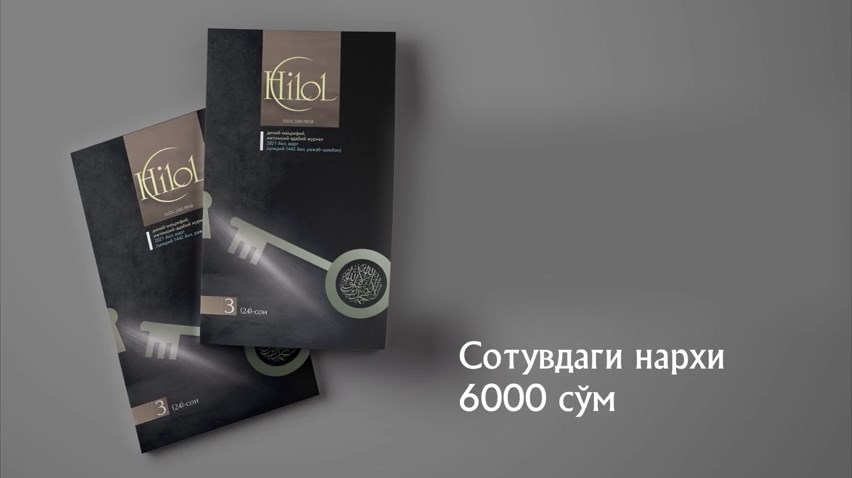Islam and Pushkin
Бисмиллаҳир Роҳманир Роҳийм.
Аллоҳ таолога битмас-туганмас ҳамду санолар бўлсин.
Пайғамбаримизга мукаммал ва батамом салавоту дурудлар бўлсин.
Meeting of the poet to the world of Islam took place during his trip to the North Caucasus, the Crimea and Bessarabia. He saw the cultural monuments of Muslims listened to the prayer, watching and thinking about Muslims. Hence his poem "The Caucasian Prisoner" and "The Fountain of Bakhchisarai" that had led to "Imitations of the Koran."
Bright ratio of Pushkin to the East, Islam and the Prophet Muhammad, peace be upon him, astonished his contemporaries. "The style was my oriental pattern - Pushkin wrote the poet Denis Davydov, - as much as possible to us, wise, cold Europeans." Friends and acquaintances called him "the apostle Muhammad," wrote about his Arab ancestors Cannibals. The very name of the poem - "The Caucasian Prisoner" - foresight unfortunate events in Chechnya, the real "Prisoner of the Caucasus." The ending of "Circassian Song" - "The Chechen walks across the river" - is proverbial, meaning any danger to humans. Justified, and his "sadness" of present-day Georgia. Works with the same name created fought in the Caucasus, Lermontov, and Tolstoy. Both genius in a different form of repetitive thoughts about the need to understand Pushkin that "you can not live forever armed, in constant anxiety attacks, it should end. The time will come, and we'll live in peace and friendship. "
The epigraph to "The Fountain of Bakhchisarai" Pushkin took the Persian poet Saadi words: "Many people, like me, visited this fountain, but otherwise is no more, while others wander far away." In the "Tatar song" sound poem "The Holy Qur'an commands" - about the Hajj in Mecca, of Paradise - reward the deceased soldier:
Gives people the sky
Replacement of tears and frequent troubles?
Blessed is the fakir, uzrevshy Mecca
In his old age sad.
Blessed is he that glorious shore of the Danube
His death will consecrate:
To him at a meeting houri
With a smile, a passionate fly.
In the first part of the "Imitation of the Koran" - a string to send down to Prophet Muhammad, peace be upon him, Shining Koran, the power of the Creator's mercy and love of God to the Prophet, peace be upon him, and those who believe in the Day of Judgement and Paradise.
I swear by the couple, and even,
I swear by the sword and the right-hand battle
I swear I'm a morning star,
I swear by the sunset prayer:
No, I left you,
Whom in the shadow of sedation
I entered, the head of his love,
And hid from persecution vigilant?
I do not eh watered daily thirst
You deserted the waters?
I am not thy tongue eh gave
Mighty power over the minds?
Take courage then, despise deception
Cheerfully follow paths of righteousness,
My Love for orphans and the Koran
With a trembling creature cry.
The words "Love orphans" were inspired by sura "alms." This is the memory of the care of Prophet Muhammad, peace be upon him, and children dead Muslims - an example of following the faith. The words "My Koran" re-emphasize the nature of sending down the Holy Quran the Prophet Muhammad, peace be upon him, the Almighty.
The second part of the "Imitation" is dedicated to the wives and the life of the Prophet Muhammad, peace be upon him.
On the wife's net Prophet
All of you women are featured:
Terrible for you and the shadow of evil.
Under the sweet shade of silence
Live modestly, you stuck
Unmarried virgin veil.
Keep the right heart
Neg for legitimate and bashful,
But look wicked wicked
Not behold your face!
And you, O Muhammad guests!
Stack to his supper,
Breguet vanity light
Embarrass my Prophet.
In the minds of the pious man,
he does not like pompous,
And indiscreet words and empty:
Kiss the feast of his humility,
And chaste declination
His young female slaves.
"Wives of the Prophet! You are not what all the other wives, if you are God-fearing, then do not be too tender in your words, that is, one in heart disease, there was no desire for you, say good conversation, "- said in the Quran.
The first wife of the Prophet Muhammad, peace be upon him, a widow, Khadija, was his senior by fifteen years. She first came to believe in his prophetic mission, becoming the first Muslim. When it Prophet Muhammad, peace be upon him, did not take himself other wives. After her death, his wives were daughter of the first Caliph Abu Bakr Aisha remembered by more than a thousand hadith about how did the Prophet, peace be upon him, at one time or another, what he said on a particular occasion, widows of brothers, a sister of one of the most powerful of his adversaries, who later embraced Islam.
The basis of the third part of "imitation" laid verses "He frowned," "Hajj", "Falling" ... It starts with the phenomenon of blind people:
Embarrassed, he frowned Prophet
Blind man came approximation:
Runs, but do not dare to defect
He was bewildered show.
With heavenly book list is given
You, the Prophet, not obstinate;
Quietly proclaim the Koran,
Not waking up the wicked! Mail Well flaunts a man?
For it because the light was naked?
What he breathes short century,
That is weak will die, how weak was he born?
For it because God and slay
And raise him - at the behest
From the sky keeps his days
And the joy and bitter lot
For it because he gave the fruits
And bread and figs, and olives,
Blessed his labors
And Vertogradov, and hill, and the cornfield?
But double-angel sounded;
On the ground thunder clap heaven:
And his brother from his brother runs,
And the son of mother otpryanet
And before God pritekut
Disfigured by fear
And the wicked shall fall
Covered with flames and smoke.
The last two quatrains inspired many verses, such as: "On that day, as you see it, every nursing forget the one who fed, and each holder of the burden lay down their burden. And you will see people drunk, but they are not drunk. But the punishment of Allah - strong "(22:2).
The fourth part of the shift the verse: "Have not you seen him who disputed with Ibrahim about his Lord, because Allah gave him power? That said Ibrahim, "My Lord - He who gives life and causes death." He said: "I make alive and kill,". Ibrahim said: "This is Allah brings the sun from the east, moving from the west as his." And he was embarrassed that he did not believe: God do not lead directly people's unjust! ".
From thee of old, the Almighty,
Powerful, compete imagined,
Mad pride of abundant;
But thou, O Lord, humbled him.
You Rivers: I will grant life to the world,
I am death, the land of behest,
At all podyata My Hand.
I am also of rivers he bestow life,
And at the death of injunction:
With Thee, O God, is me.
But the prophet was silent boast
From the words of thine anger:
I lift up the sun from the east;
From Dusk podymi it!
The first two quatrains of the fifth part of "imitation" dedicated to the Creator and His power:
Earth motionless; sky arches,
Creator, supported by Thee,
Do not fall in the drought and water
And do not overwhelm us are.
You lit the sun in the universe,
Yes shining heaven and earth,
As flax oil saturated with,
In the lamp-shining crystal.
Creator pray, He the Mighty:
He rules the wind, a hot day
The sky sends the clouds;
Gives ground woody canopy.
He is merciful, He Mahomet
Noble opened the Quran
Yes, and we pritechem to the light
And let fall from the eyes of the fog.
Pushkin's epithet of "Shining the Koran," adds the Last-known definitions of Scripture: "The clear, noble, glorious, All-Wise."
The words "celestial Koran" contains the answer opponents of Islam, denying the sending of the Holy Qur'an to Prophet Muhammad, peace be upon th. The words "yes we pritechem and to the light" reflect the idea of a peaceful nature of Islam. The word "pritechem" repeats the second verse the word "stack". "Pritechem!". As rivers flow into the sea, and people pour into the ummah of Muslims from among the Jews, Christians, atheists and pagans. "Pritechem" to "fell from the eyes of the fog." And the word 'Light' is the name of Allah, and called sura, containing the following words: "God - the Light of the heavens and the earth ... the light in the world! God leads to His light whom He pleases ... ". It follows from this song Sura "Ibrahim", "I am God - Seeing. The book which We have revealed to you so that you could bring to assent to the Lord out of the darkness into the light, the path of the Mighty, the Praised. "
The sixth part of the poem is dedicated to the victims on the battlefield with the pagans and idolaters. It - of Rye, died waiting
In the seventh part of the sura of the Koran Pushkin shift the "Family of Imran". It begins with an invocation to the Prophet, peace be upon him, - "Arise!". Yes, the Prophet Muhammad, peace be upon him, who was born in Mecca, where he lived from time immemorial the pagans, Jews, Christians, preaching a new religion - means to rebel:
Arise, O timid:
In the cave of your
The holy lamp
Until the morning light.
Prayer of the heart,
The Prophet, remove
Sad thoughts,
The evil dreams!
Before the morning prayer
Humbly to create;
Heavenly Book
Until the morning read!
"In your cave" - in the cave of Hira Mountain, where he prayed for a long time the Prophet Muhammad, peace be upon him, by night the 24th day of Ramadan 610 by the will of Almighty God appeared to him the angel Gabriel to the "Book of Heaven", as the words sura " Night of Completion. "
As the Prophet Muhammad, peace be upon him, as old men, hermits, says, "when one - I'm with God," Pushkin was honored "the student's cell," Lyceum, "a small grotto" in Gurzuf "big gray grotto" in Kamenka kept the "inner cell of my heart," in a cave with a "sacred lamp" in the estate of Michael came to Pushkin "Imitations of the Koran" and poems:
The cave has a mystery on the day of persecution,
I read the Koran sweet;
Suddenly an angel of consolation,
Take-off, brought me a talisman.
His mysterious power ...
Drew the holy words
He obscure hand.
The eighth part of the poem - a prayer for the word "love orphans" are listed in the first verse, as many verses verses sound like "charity":
Trading poverty of conscience before the pale
Not rash their gifts calculating hand:
Bounty Full pleasing sky
On the Day of the terrible Court, like the field of fat,
On the sower happy!
Hundredfold reward it with your writings.
But if pity works terrestrial grubbing,
Handing over the stingy alms to a beggar,
You compress your jealous Hand -
Know all your gifts, like a handful of dust,
What a stone rain is abundant,
Disappear - Lord outcast tribute.
Orphanhood touched Moses and Muhammad, peace be upon them both. "Revelation Mother of Moses we said, his nurse, and when you afraid of him, throw him into the sea. Do not be afraid, do not worry, we will refund it to you and will do his messenger. " The father of the Prophet Muhammad, peace be upon him, died before his birth. Six-month child he was taken to be raised in a tribe of nomads. At age 6 he lost his mother.
Zakat, or alms - not charity and kindness to orphans and the poor, a tax of brotherhood. Zakat is associated with the rights of the poor and the weak part of the property of the rich. Property rights - property of Allah: "If you know good in them, giving them something of their property, what gave you the Lord." Charity - it's a good word, sympathy in sorrow, any help or service. "So the poor are not less able to give alms than the rich. And in this they are equal. "
The last part of the ninth, "Imitation of ..." was inspired by the second sura of the Quran (2:261). In it the weakness of the traveler, "murmured against God," for mercy for him, "Lord of heaven and earth":
And then a miracle in the desert was accomplished:
The past glory of the new quickened;
Again zybletsya palm shady head;
Once again, a storehouse full of coolness and gloom;
And crumbling bones of donkeys stand up
And a body dressed, and the roar of the issue;
And the traveler feels and strength, and joy,
The blood began to play Risen Mladost;
Holy enthusiasm filled the breast:
And with God, he then embarks on a journey.
For a long time after Pushkin's poem "The Talisman" in the Crimea were in use were similar talismans or popular prints depicting "beautiful girl in Tatar national clothes dressy donated his girlfriend a ring mascot":
Where the sea roar, for ever,
On desert rocks
Where the moon shines warmer
In the sweet hour of the evening mist,
Where in the harems of enjoying,
Days carries Muslims
There's a magician, caressing
I handed the mascot.
And, fondling, said:
Save my talisman -
It mysterious power!
He'll love Dan.
In the storm, a terrible storm
Your head, my dear,
Do not save my mascot.
And the riches of the East
He will not bestow,
And fans of the Prophet
He will not win.
And you in the bosom of another,
From the sad alien countries.
In the native land to the north from the south
Not umchit my mascot ...
But when the crafty eyes
Suddenly enchant you,
Ile mouth in the darkness
Suddenly you kiss:
My dear friend! Of crime,
From the heart of new injuries,
From cheating, from oblivion
Save my mascot.
The pagans of Mecca said that the Koran is a poem supposedly composed by Muhammad, peace be upon him. They and their followers turned the words of Allah: "Yes, they say it - the confusion of dreams. He invented it, and he - a poet, "and Pushkin's words:
They asserted, let vision
Interprets the wily Mohammed
They mind it (creation)
His eh listen to us - he's a poet!
Islam did not leave the topic of Pushkin. Not once in the Koran and Hadith sounds, words and deeds that preceded the intentions of man. Hence Pushkin's words ("Boris Godunov"):
Your words, actions are judged people
One sees God's intentions.
The manuscript of "Eugene Onegin" as were the words:
In the Quran, many thoughts robust,
For example: "Previous sleep each
Pray, how crafty bags,
Honor God and do not argue with a fool.
At the end of the poem "Monument" sounds "And do not fool osporivay." Let us remember the string "The Prophet":
And he my chest slashed with a sword,
And the quivering heart took,
And a coal burning fire,
In breast otverstnuyu vodvinul.
This idea is clearly inspired by the Koran: "Do not expand your chest and we could not deliver you from your burden," Hadith of the Prophet Muhammad, peace be upon him, whom the angels opened the chest and was taken out and cleaned the snow and the heart, putting him in the chest, exiting .
The final words of confession of the author and the call of God: "Arise, O Prophet ..." repeat words to Muhammad, peace be upon him, at the beginning of the seventh part of the poem "Rise timid."
Pushkin called himself "ugadchikom", because the Prophet Muhammad, peace be upon him, was the last messenger of God the Creator. Maybe he was the first of the prophets of the Muses called Islam a world religion.
Haris Iskhakov
Journal of "Islam"
Translator Guzal Mukhiddinova






